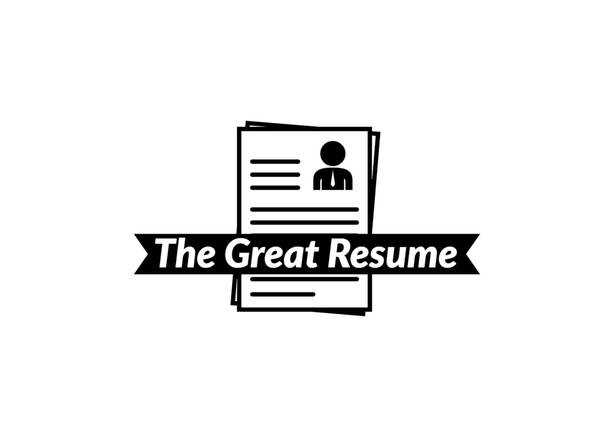Ah, yes. The realm of self-employment. You get to wake up at 10am every morning, drink your tea, maybe go for a brisk jog, and then be ready to hit the pavement and get working by noon! Life couldn’t be better, right? Not exactly.
While being self-employed may sound like a dream come true, your hours are likely very long. Working for yourself is a major commitment if you want the business to transition into a feasible career, and it requires a tremendous amount of dedication and accountability to achieve your target goals. Let’s lay out some of the pros and cons:
The Pros:
- You are the boss, and you call the shots!
- You are solely responsible for determining the future, trajectory, and outcomes of your business.
- You set the standards for your company culture, ethic, and integrity.
- You have immense autonomy and flexibility with your schedule.
The Cons:
- You wear many different hats, especially if you are a small operation. HR and Payroll in the morning, and Sales, Marketing, Production by the afternoon! Sounds like fun, yes?
- You never truly get a day off. Running a business is a 24/7 endeavor. In your free time you are likely assessing, reflecting, adapting, researching, or troubleshooting scenarios in your head that you can take into the office and try on Monday.
- Your income can be very inconsistent. This is stressful in itself, and those who are self-employed with a family to support endure a significant amount of risk.
Unfortunately, due to a plethora of different reasons that could be in/out of someone’s control, there are many professionals who end up in a position where they cannot sustain the business that they set out to take full-time (or that they currently do manage full-time). Regardless of the situation, these professionals have to make the major decision to re-enter the dreadful world of the job market.
What’s unfortunate is that this can be a HUGE challenge for people! I have spoken with senior level professionals with all of the talent and experience in their arsenal, and they said that getting back into an 8-5 role within their scope of interest and qualifications was near impossible.
But why?
Well, Here Are A Few Reasons…
(Prepare For Harsh Generalizations):
- People Don’t Want To Hire Someone Who Has Been Their Own Boss:
This is especially true if you were self-employed for a long period of time. Hiring managers perceive this to be a big headache, and believe those who were self-employed couldn’t possibly be content with reporting to a manager/board, or be willing to accept constructive criticism. After all, once you’ve had free reign to do whatever you want with your business, it would make sense that you wouldn’t be a happy subordinate, right? Wrong.
The problem is that there’s a major disconnect between employers and the professionals wanting to re-enter the world of employment. Hiring managers fail to recognize that when you’re self-employed, you still work for a boss; many different bosses, in fact. These are your clients, and nothing has changed. You are held accountable by your clients, and must report expected outcomes to deliver measurable results.
Overall, there are many similarities where you can establish the connection between self-employment and traditional employment. It is imperative that you constantly do this throughout the process to mitigate the stigmas.
- You Might Lack Direction Or Consistency:
Something interesting to consider is that the people who enter self-employment are typically individuals who felt like they were missing something in their careers. Because of this, the hiring manager might worry that you lack direction because your business didn’t work out. They will want to know your career goals by digging deep into this subject. They will also try to ascertain your level of interest in the company. Do you have a genuine interest in the organization, or do you simply seek a position for an income and benefits? If it is the latter, you will never get hired.
- You Are Viewed As A High Risk/High Reward
I once recall someone who compared hiring someone that was self-employed to “letting a wild bobcat out inside of your house.”
If we are being honest, the high risk/reward is a valid concern. People who are self-employed tend to offer excellent intangibles and transferrable skills because they’ve been the boss. They likely have tremendous drive, passion, and possess deep subject-matter expertise in their respective fields. They have worn many different hats in their own business and have a true leadership disposition.
To summarize, you are likely more than qualified for the job on paper. So, it doesn’t come down to the question of CAN you do the job. It really comes down to these 3 questions:
- Will You Love The Job?
- Can We Tolerate Working With You?
- Are You Worth The Risk Compared To the Reward?
It really comes down to where the organization is in their strategic positioning. Do they need someone who can help set the new growth trajectory of the company with more potential risk, or do they need to manage what they already have, and hire someone who might offer more consistency?
In today’s climate, hiring and retaining the right people is more important than ever. Because of this, be mindful that you might be competing with the person who currently works there, is due for a second promotion, and works late every evening.
- Where Does Your Loyalty Lie?
More question marks above your head. If you don’t offer enough clarity in your answers as to what happened with your business, the hiring manger might consider you a conflict of interest. Where does your loyalty truly lie? Will you still work with your business on the side and resign as soon as things are stable again? Why did you business fail? Are you simply not as effective in your work as you think you are?
Here’s What You Need To Do:
- Your interviewing skills better be sharpened and refined to excellence.
Whoever you will be interviewing with, the recruiter who just started last Tuesday, HR, Risk Management, or the CEO over dinner, will be in constant evaluation mode of you and will likely remain cynical and skeptic. No matter how well you perform, and no matter how many interviews you ace, there will always be at least one person who isn’t going to approve/advocate for you simply because they don’t trust you. This is why we need multiple sign-offs from other key decision makers throughout the process to give you the nod and pass you through. This stems from diligence in your research and demonstrating you are an inclusive leader who actively seeks constructive feedback.
- Be An Excellent Listener:
As discussed before, we want to make as little “noise” as possible. You need to demonstrate leadership qualities beyond the drive, wisdom, and expertise; real soft skills and emotional intelligence. You are a team player now, remember? Display that you are inclusive, an effective listener, receptive to constructive criticism, and you can work effectively in a team.
Not only that you CAN work in a team, but YOU WANT TO. Always.
- Use your knowledge as a business owner to your advantage!
Showcase your expertise and leverage your skills whenever possible. They know that you could be a very valuable asset to the team. They simply aren’t sure how risky you are. Try to highlight this, and make them feel at ease. They will likely ask you how you plan on being happy as team player and content with having a chain of command.
- Your Research Must Be 6 Inches Thick:
Second most important. You will be vetted and criticized to a much higher caliber than someone who was not self-employed. You must be well-versed on the organization; 4-6 inches of research. You will need to prove that you made an informed decision on where you wanted to work. If you didn’t do the research to show you had a genuine reason for choosing the company, you’ll never get hired.
- Your “Why” Better Be Good:
Most important. It’s likely that you were put into a spot where you were forced to re-enter the workforce. You might not even have had the time to truly reflect on what it is you could be passionate about. If you did not have the time to research and make an informed decision, everyone is set up for failure. You can’t fake passion. Getting a job is already hard enough without the “red flag” of self-employment. Make sure you are applying to companies that you could be passionate about.
- Offer Absolute Clarity In Your Answers:
A must. If I was the hiring manager, here are a few key “why” questions that I would want to know about you:
- What happened with your company?
- Why did you choose to apply here?
- What do you know about our company?
- What do you know about the role?
- What are you searching for in your next opportunity?
- Where else have you applied/interviewed?
Entering traditional employment after being self-employed is very hard, and there are many obstacles you must overcome to get a great job. Hiring a career coach to offer personalized troubleshooting through the process will be crucial to expediting your search and securing a career path/salary that you deserve. Regardless, hang in there, stay focused, and everything will work itself out in time.

